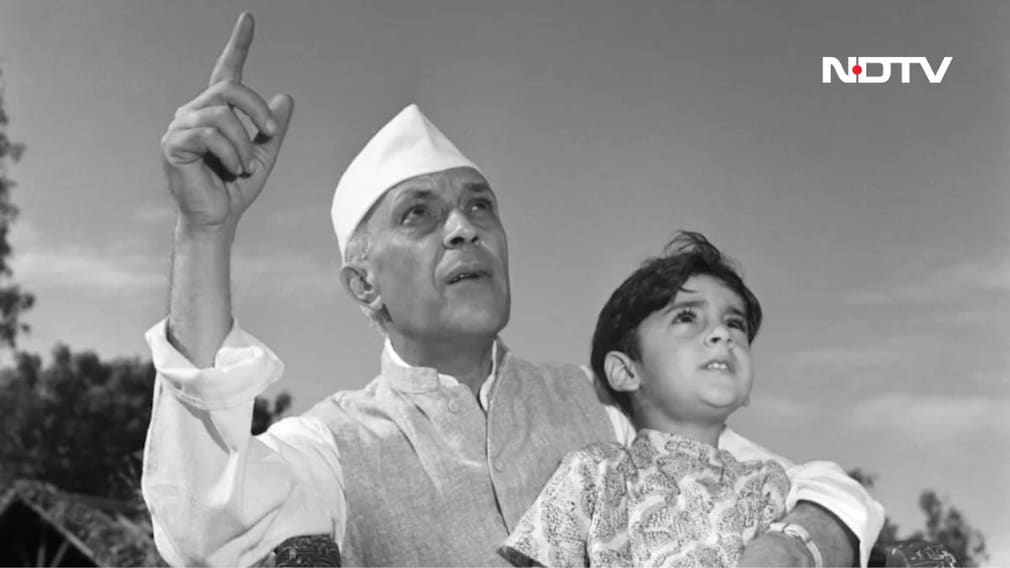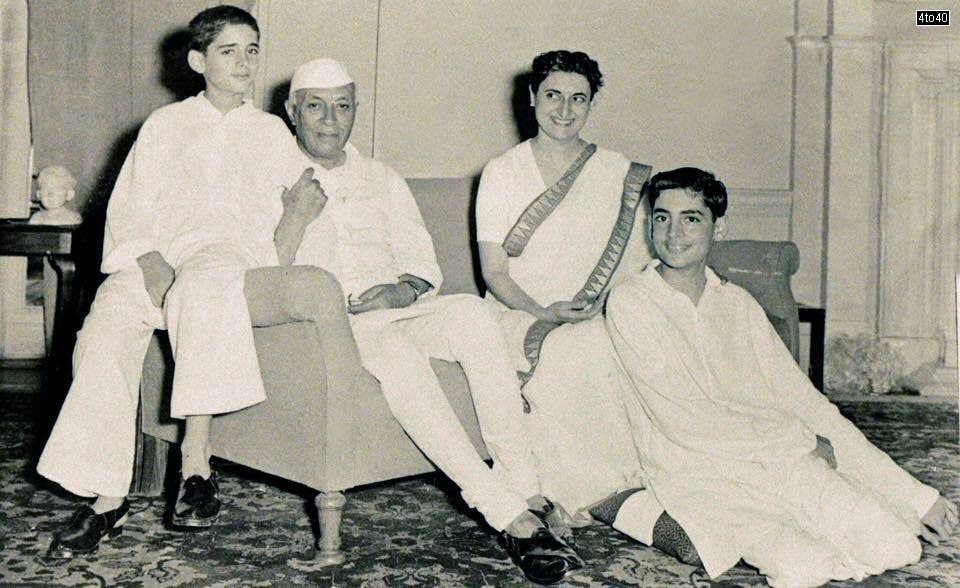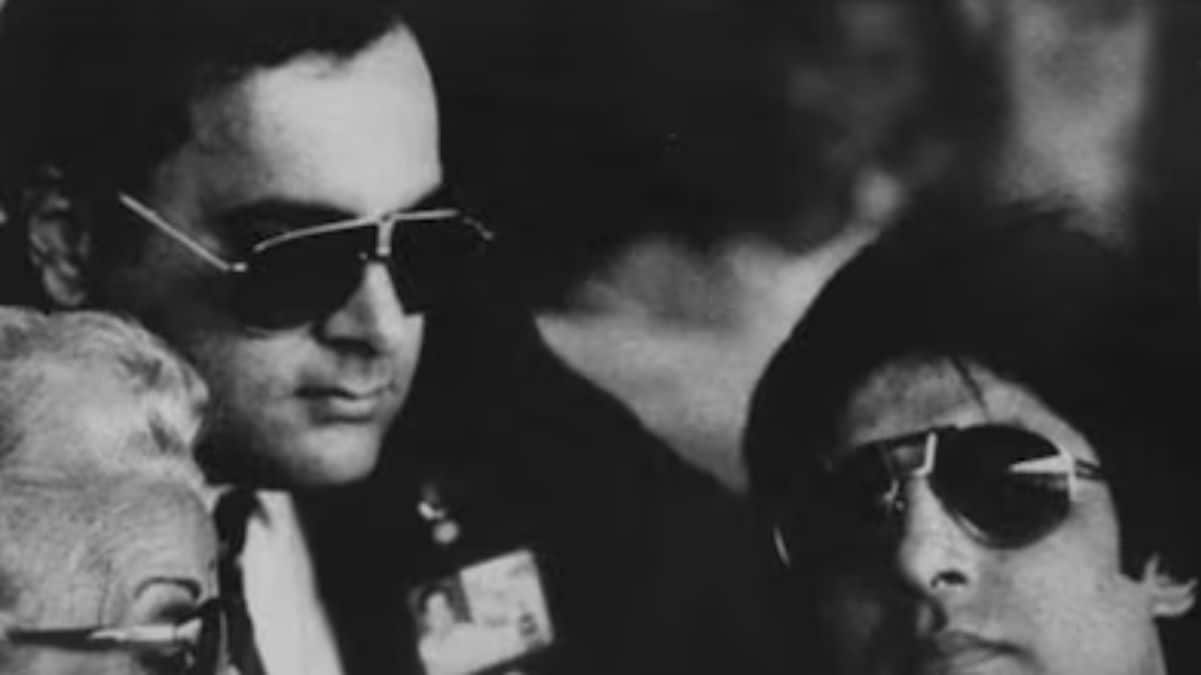Opinion | Planes, Films With Bachchans, Lucknow: Growing Up As Rajiv Gandhi
On Rajiv Gandhi's 81st birth anniversary, noted columnist Rasheed Kidwai looks at the world of the Gandhis, beyond politics

Had Rajiv Gandhi lived on, he would have turned 81 today.
Rajiv Gandhi was born in Bombay on August 20, 1944, at Cumballa Hill hospital run by Dr V N Shirodkar, a well-known gynaecologist. Indira was in Bombay to be with her aunt Krishna Nehru Hutheesing - the younger sister of Jawaharlal Nehru - because both Feroze Gandhi and Nehru were in jail. Feroze Gandhi had insisted she should not stay alone at Allahabad's Anand Bhawan. While Feroze was released a few days before Rajiv was born, Nehru was at the Ahmadnagar Fort prison, where he had to spend 963 out of 3259 days in jail during the freedom struggle. It took Nehru over 10 months to get the first glimpse of his grandson after being released from Almora Jail on June 15, 1945.
In her book, Dear to Behold - An Intimate Portrait of Indira Gandhi, Krishna recalled her nervousness when Indira was in the labour room. "I harassed Dr Shirodkar by repeating over and over again, "doctor, it has got to be a boy, because my brother [Nehru] has no son". He even instructed Krishna to get a proper horoscope to be drawn up by a "competent" person for the baby. By mid-September in 1944, Nehru wrote to sister Vijay Lakshmi Pandit that if the family did not decide soon, "we shall have to call [him]...the Nameless or the one with innumerable names". Nehru chose the name 'Rajiv' because it meant lotus in Sanskrit and had the same meaning as Kamala, Rajiv's grandmother, who had died eight years before Rajiv was born. His full name was Rajivratna - 'ratna', or jewel, also means 'Jawahar', so Rajiv had inherited the names of his grandparents.

Sanjay and Rajiv Gandhi with Jawaharlal Nehru and Indira Gandhi.
Photo Credit: X/Indian Youth Congress
Even the news of Rajiv's birth reached Nehru several days later due to censorship. Nehru wrote back, rejoicing, "The birth of a new member of the family always makes one feel reminiscent and remember one's childhood and other births.... Nature goes on repeating itself, there is no end of its infinite variety, and every spring is a resurrection, every new birth a new beginning, especially when that newborn is intimately connected with us; it becomes a revival of ourselves and our old hopes centre round it."
Nehru finally got to see his grandson in June 1945, when Germany had surrendered to the Allied forces on May 7 that year, and when in India, all political prisoners, including Nehru, were released. This was the time Indira devoted herself fully to look after Rajiv, while Feroze Gandhi started selling insurance.
'Forehead Like Feroze's'
When Nehru saw his grandson for the first time, he remarked, "The forehead seems to be rather like Feroze's". Nehru had also given a Persian name to Rajiv - 'Birjees', after the legendary king of gods. In Persian, 'Birjees' also means Jupiter and an auspicious one. Nehru also wanted Feroze and Indira to use Nehru as an additional name to 'Rajivratna Birjees'.
In November 1946, when Rajiv was 15 months old, Feroze Gandhi joined the National Herald, a newspaper founded by Jawaharlal Nehru, as its managing editor. The job required him to stay in Lucknow, where Feroze took a small house and furnished it with great care. He designed his own furniture and planted over a dozen roses. Indira busied herself with housekeeping and looking after Rajiv. In Lucknow's social and political circles, the couple was a sought-after company, but both Indira and Feroze avoided the limelight. They shared love and affection and helped each other out.
Rajiv grew up with an inquisitive mind and an interest in mechanical toys and gadgets. This trait was ignited in him to a great extent by Feroze, who, too, enjoyed gathering knowledge about whatever he came across. Over time, both Rajiv and his younger brother Sanjay got involved in mechanics, be it a car, a plane or any type of engine. It aroused their curiosity to the hilt. Feroze, a devoted parent, even constructed toys for his sons and encouraged them to find out for themselves how machines worked and how to take things apart and arrange them. Feroze wanted both Rajiv and Sanjay to become engineers.
Films, Bachchans, Pool Days
Indira was a tender mother. Perhaps because she was mindful of her own loneliness as a child, she supervised Rajiv-Sanjay's meals, played with them, and took them to films. She also utilised the services of a Danish governess, Anna, who had been secretary to scientist Jagdish Chandra Bose. Anna was a strict disciplinarian who believed in giving Rajiv and Sanjay cold showers, sunbathing, exercises and a diet essentially of vegetables and yoghurt.
When Rajiv was two years old, he met Amitabh Bachchan, himself barely four, at Allahabad. In an interview, Amitabh recalled his first meeting with Rajiv, "There was this fancy dress party on Bank Road (the Bachchans' residence in Allahabad). Rajiv Gandhi was two years old and had been dressed up as a freedom fighter. Ma says he messed up his pants. We were all such tiny kids then, absorbed in our little games, that it didn't seem such a big deal that Pandit Nehru's grandson was in our midst.'

Rajiv Gandhi with Amitabh Bachchan (file photo)
In another biography, Amitabh traced the Gandhi-Bachchan family ties and said: "Rajiv and Sanjay studied in Doon School, Ajitabh and I were in Nainital... But our holidays fell around the same months. We'd hang out and swim every day at the pool of Rashtrapati Bhawan. The friendship continued. After schooling, Rajiv went off to Cambridge. Whenever he would be back home, we'd get together and exchange notes... When he started flying, I'd go with him to provide ballast at the Flying Club of Delhi. I'd glide there for hours... Panditji died. Mrs Gandhi became Prime Minister, and the family moved to 1 Safdarjung Road, which was close to our home at 13 Willingdon Crescent. Rajiv, Sanjay, Ajitabh and I formed a closely knit group of friends."
By Amitabh's own admission, it was Rajiv and Sanjay who exposed him to avant-garde cinema at a young age through the European films that were specially screened for the Gandhi family at Rashtrapati Bhawan. "Rajiv and Sanjay Gandhi and I would attend screenings of The Cranes Are Flying and Czech, Polish and Russian films, which often packed in an anti-war message," Amitabh recalled.
'You're Playing Cards The Whole Day'
While Indira avoided assuming a political role, she took deep care to keep political opportunists out. She tried to ensure that her political and social work did not affect her bond with children. Mohammad Yunus, a close friend of the Nehru-Gandhis who had seen Rajiv and Sanjay since their birth, recalled in his memoirs how Indira took care to spend quality time with her sons and directed their activities. Once, a socialite dame notorious for her interminable cards sessions asked Indira if she ever found time to be with her children. Sanjay, who was just around eight then, heard this, and before Indira could respond, shot back saying, "Mummy spends more time with us than you do with your son. He hardly sees you because you are playing cards the whole day."
(Rasheed Kidwai is an author, columnist and a conversation curator)
Disclaimer: These are the personal opinions of the author
-
Opinion | Congress's 'Jamaat' Experiment In Kerala Can Backfire Badly. But Does It Care?
The Jamaat has always been sort of a political pariah in the state. Why, then, is the Congress warming up to it?
-
Opinion | A BAFTA Award, Straight From The Ashes Of Manipur's Moreh
The shooting for 'Boong' in Moreh wrapped up barely a week before violence engulfed the township. Many who stood behind and before the camera are today internally displaced.
-
Inside Mumbai's Worsening Air Pollution Crisis
Mumbai Air Pollution: Mumbai 's overall Air Quality Index (AQI) on February 25 remained in the poor to unhealthy range.
-
Opinion | What's In An 'M'? The Empty Performance of Renaming Kerala
The 'm' at the end of Keralam will not stop the sea from encroaching, it will not fill the coffers of the state treasury, and it will not provide a bed in a super-specialty hospital.
-
6,800 km From Epstein Island, His Paris Lair Surfaces With Disturbing Details
The photographs show an 18-room residence saturated in red, orange and pink tones. Walls are covered with framed images of naked or semi-naked young women.
-
Opinion | How Israel Once Defied Its Biggest Ally To Secretly Help India Against Pakistan
During the 1971 India-Pakistan war, Israel secretly supplied India with critical military equipment despite the absence of formal diplomatic ties. Then came an 'offer' against Pakistan in the 1980s.
-
Opinion | If You Don't Care About Taj Mahal's Architect, Why Cry Over Lutyens?
The parallel, if one has to be drawn, is not with Shah Jahan and the Taj. It is with the architect of the Taj, and most of us don't know his name either. Why, then, should we bother too much with a British architect?
-
Opinion | Inside Trump's Dirty Games With South Korea And Japan - And Why India Must Care
The US President's dealings with his two allies have become cautionary tales highlighting the difficulty of negotiating with Trump's America.
-
From "Jai Shree Ram" To "Jai Maa Kali": BJP's Cultural Rebranding In Bengal
The BJP's strategy seems to be to acknowledge that the intricate dance of politics, pre-Independence history and culture, when done with sincerity and respect, can unite rather than divide










